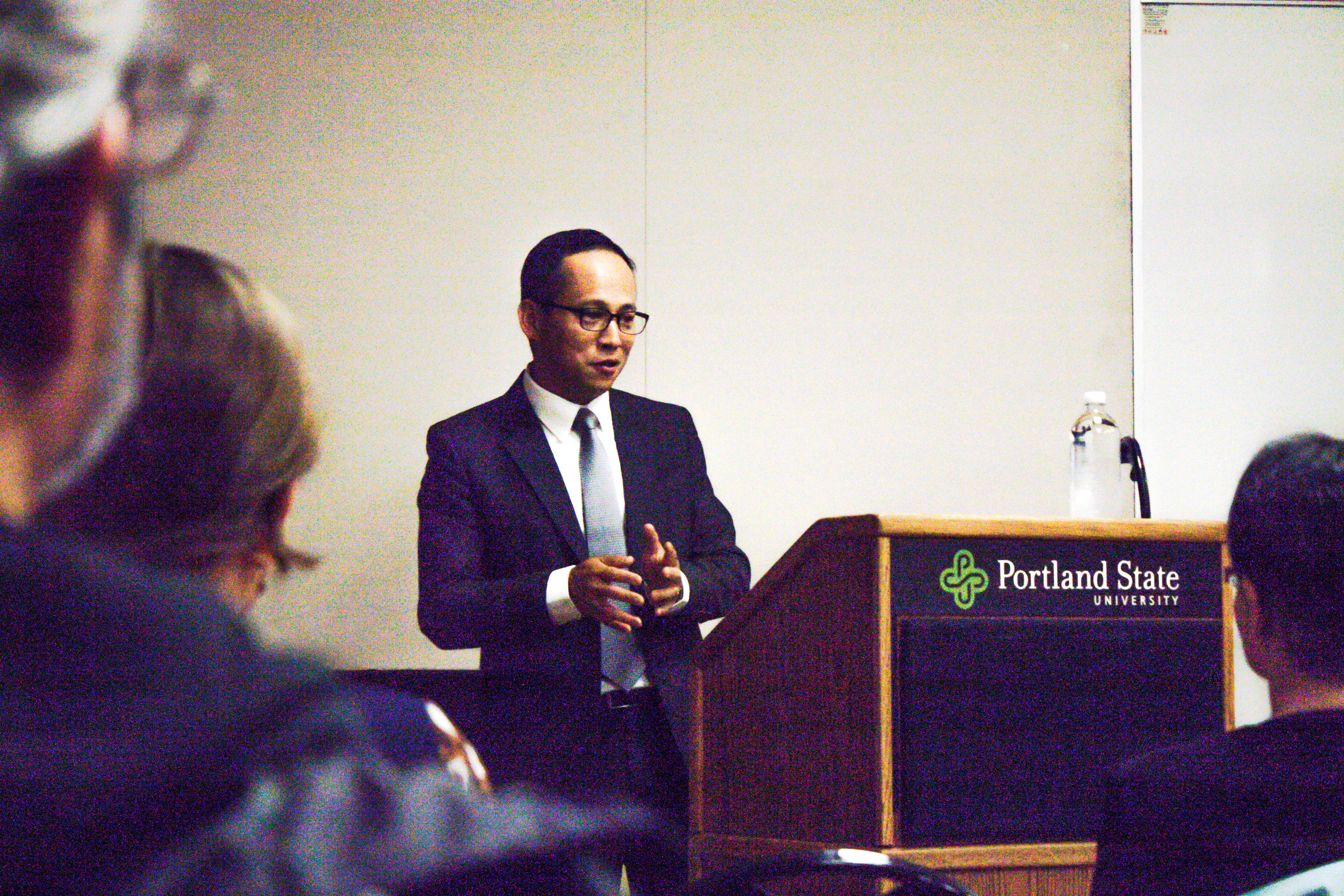We all know there is a stigma against community college. And before I took community college courses, I was guilty of propagating that stigma. The idea is that courses will be easier because they’re designed for less intelligent people, and the teaching staff will be subpar. This opinion exists all over the U.S.
Battling the stigma of community college
We all know there is a stigma against community college. And before I took community college courses, I was guilty of propagating that stigma. The idea is that courses will be easier because they’re designed for less intelligent people, and the teaching staff will be subpar. This opinion exists all over the U.S.
Now that I’m in my mid-20s and back in school, I see that the stigma is incredibly misplaced.
I completed my undergraduate degree at a university, and finished my master’s a year later. I moved into the workforce, realized I wasn’t happy with the path I’d taken and decided to make a much-needed switch.
I moved back to Oregon and enrolled in community college classes, something I’d never expected to do. I took biology and chemistry, courses I hadn’t considered taking during my undergraduate degree, and to my absolute surprise not only were instructors excellent, but the students were engaged, excited and motivated to succeed.
Immediately, so many of my preconceptions broke down.
At first I was hesitant to tell my college friends that I was taking community college courses, but all of a sudden so many people I knew were heading back to school to change careers—and starting in community colleges. It was as if it had become a post-graduate degree of its own.
During the year that I took a full course load, I got to know my teachers. Thanks to the small class sizes, I met intelligent, hardworking, motivated people in my courses, and I felt like I’d joined a community—not just sat in a lecture hall with hundreds of unknown faces waiting for the hour to be over.
We took field trips in my biology class, because the class was small enough and the teacher excited enough. I didn’t feel underprepared switching over to Portland State science classes after a year, but I did miss the small classes and interaction with my instructors.
The year I spent in community college put me close to the material, where I had no choice but to interact with it and learn it. There was no sitting at the back of the class; as only one of 20 students I was forced to be engaged. I credit that year with inspiring me to continue in the sciences.
What I didn’t realize until I got to PSU was the enormous number of students who started at PCC or other community colleges and completed a few years of credits before transferring.
The more often I mentioned my own path, the more people I met who had similar stories. Community college is a pathway for so many adults who want a new direction, not a place in which people are lost and floundering.
Many people I’ve spoken to say they chose community college as a way to change careers because it was cheaper and provided a better learning environment than 200-person lectures.
The stigma that someone is at community college because he or she can’t cut it at university is plain wrong. Community college has emerged as a legitimate and credible alternative—not to mention it’s more affordable.
With the push in the last decade to graduate from university as soon as possible and find a job in a sagging job market supersaturated with people who have college degrees, it follows that community college would become an ideal place for many to go in search of new interests and expansion of their skills without completely starting over in a new degree program.
Tuition is skyrocketing, after all, and taking a class simply because it looks interesting is a luxury that most of us can’t afford. Community college has filled a niche—one that four-year universities can’t hope to fill as they battle increasing class sizes and the costs of operating as research institutions.
Of course, there’s something great about being surrounded by professors who are making breakthroughs in their fields, but all the instructors I had in community college were really in love with teaching, which is why many had foregone the research route.
This is my experience with community college, and while I’m sure many others have stories that reinforce the stigma, I didn’t see much of that negative side. Instead, I saw a learning environment that made me excited to be back in school again and motivated me to continue my education.





